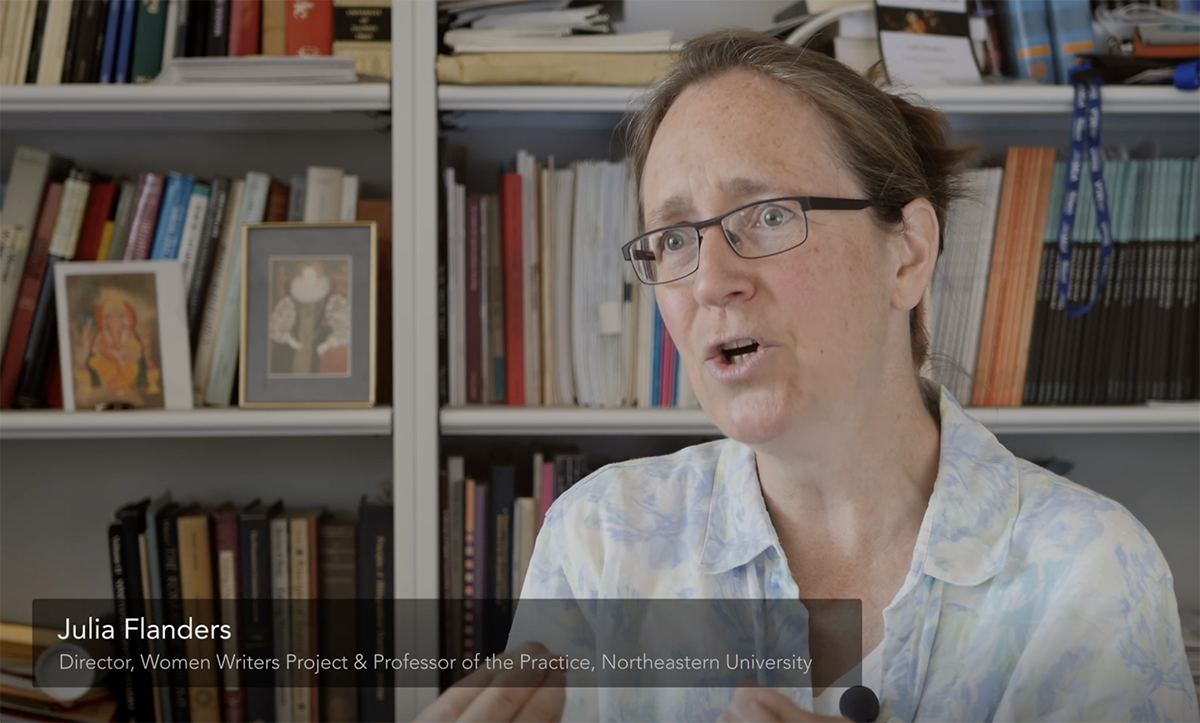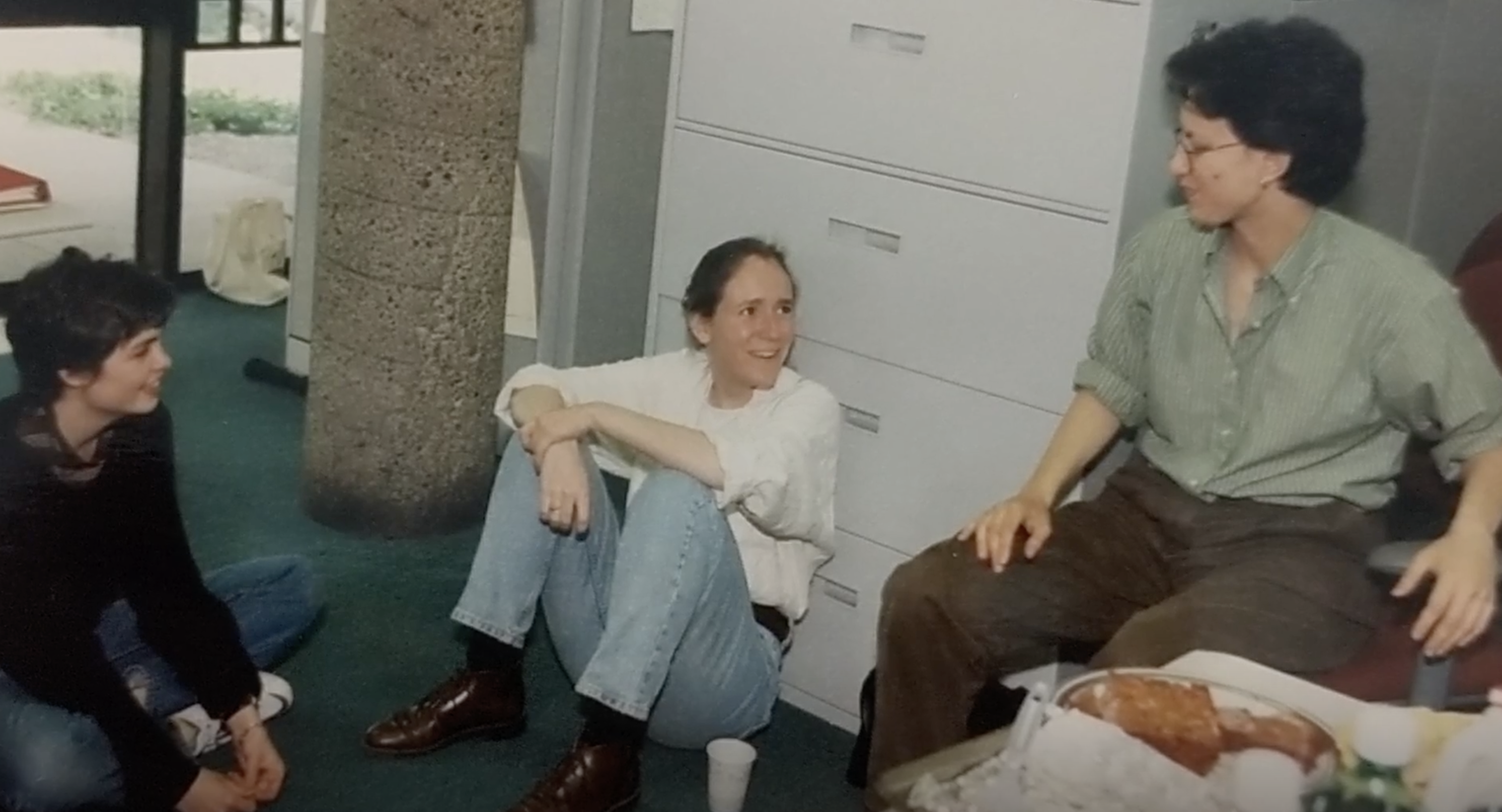On March 27, as part of a month-long celebration of Women’s History Month, the Women Writers Project hosted a screen of Always in Progress: Three Decades of the Women Writers Project, a documentary by John Melson.

Work on this documentary began in 2018 as part of the WWP’s celebrations of the project’s 30th anniversary. This milestone marked an opportunity to reflect on the WWP’s decades of work bringing texts by pre-Victorian women writers out of the archive to make them accessible to a wide audience of teachers, students, and scholars. The documentary shares highlights from the WWP’s years at Brown University, where the project was founded in 1988, and Northeastern, where the project moved in 2013. We were delighted to have in the audience present and past members of the WWP community, including students, staff, and advisors—it was exciting to see familiar faces and remember the many important contributions people have made over the years.
The documentary outlines the WWP’s long history as a project focused on early women’s writing and text encoding, and includes insights from current and past staff and students about representing texts using the Text Encoding Initiative markup language and publishing them on the Women Writers Online digital interface. The film also follows WWP staff and students as they work on several initiatives, including the Women Writers Vector Toolkit exploratory interface; the Women Writers in Review collection of periodical reviews; the Women Writers: Intertextual Networks interactive bibliography; and the Women Writers in Context scholarly exhibit series. Several scholars and experts in the digital humanities, including Dean of the Library Dan Cohen, also speak about the impact of long-term projects like the WWP on digital scholarship and discuss what the project can teach us about the history of the digital humanities.

The documentary was made possible with support from the Northeastern University Humanities Center, the NULab for Digital Humanities and Computational Social Science, and the Northeastern University Library. It was directed by John Melson, with camera and sound by Melson and Colleen Nugent. To learn more about the WWP, see the project’s Welcome page.